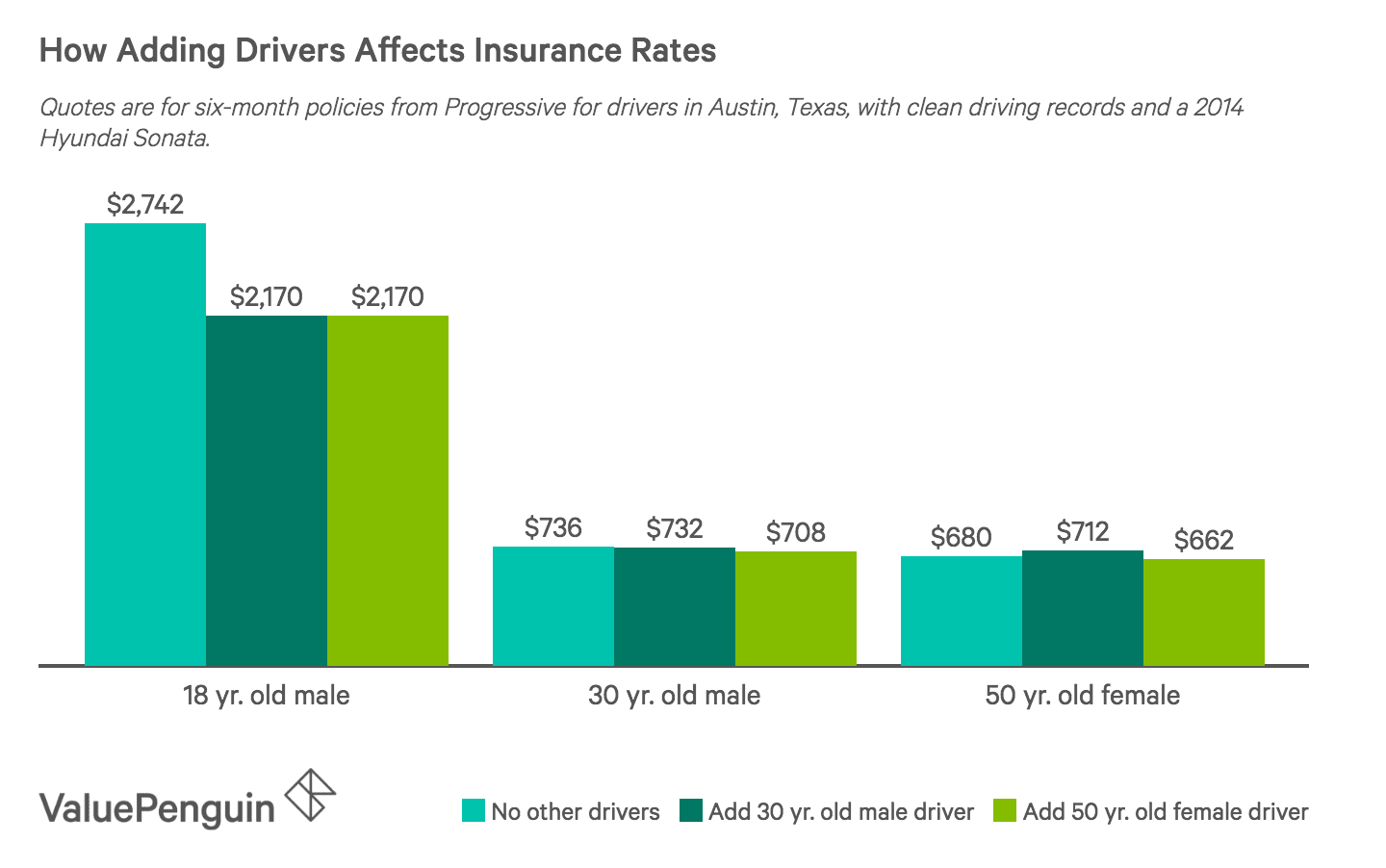How to Add a Driver to Your Car Insurance
Find Cheap Auto Insurance Quotes in Your Area
You'll need to add to your car insurance policy anyone who lives with you and has regular access to your car. Otherwise, you risk being denied coverage if they get in a crash.
Adding someone to your car insurance affects your rates, but not always negatively. Sometimes, you'll actually save money, depending on the age and driving history of everyone you add to your policy.
On this page:
How to add a driver to your insurance policy
For most major companies, including Geico, State Farm and Progressive, you can add a driver to your car insurance policy simply by calling the company or your insurance agent. You can usually also add a driver online.
To add a new driver to your policy, you'll likely need the following information about them, but the exact requirements vary by company.
- Name
- Date of birth
- Sex
- Social Security number
- Occupation
- How long they've had their license
- Any recent traffic tickets or accidents
Suppose you're permanently adding a driver to your insurance policy — like if your child just got their driver's license. In that case, shop around for a new policy, as you might find cheaper car insurance rates at another company.
The cost of adding a driver to your car insurance
Adding a driver to your car insurance policy will affect your rates but not always by raising them. Depending on who the primary and secondary drivers are, adding another driver can actually bring your car insurance costs down a lot.

Find Cheap Auto Insurance Quotes in Your Area
To understand the financial impact of adding a driver to an insurance policy, quotes were collected for three solo drivers — an 18-year-old man, a 30-year-old man and a 50-year-old woman — and then two different secondary drivers were added to see the rate differences.
In almost every case, adding a driver lowered rates. Young drivers can expect to save the most: Adding another driver to the 18-year-old's policy reduced his rates by more than $500. The only driver who would pay more was the 50-year-old woman if she added a 30-year-old man to her coverage.
This is because insurance companies set rates based on the chance that a vehicle will be involved in a crash that results in an insurance claim. Teens are by far the most likely to get into automobile accidents and have the highest rates. So a car shared by a 30-year-old and an 18-year-old is less likely to be involved in a crash than one driven exclusively by a teen.
When you need to add someone to your car insurance
You need to add someone to your car insurance policy if they live with you, have a driver's license and have access to your car.
This can include your significant other and any driving-age children. It may also include college-age children, depending on how far away they live and whether they drive your car while they're home.
Some insurance companies may also require you to add anyone who lives with you, even if they're not related to you, such as a roommate. But even if your company doesn't require it, consider adding your roommate anyway if they borrow your car — even occasionally. If your roommate gets in a crash when driving your vehicle, your insurance company may not cover the damage if they determine the roommate should have been named on your policy but wasn't. Plus, adding them to your policy may not cost you much.
When you don't need to add someone to your car insurance
You don't need to add other drivers to your car insurance policy if they don't live with you and drive your car only occasionally.
For example, if a guest is visiting you from out of town and borrows your car while you're at work, they would be protected by your policy's "permissive user" clause. This is because a car insurance policy follows the car, not the driver.
This is true even if the other driver is a family member. The above example still applies if the guest is your son or daughter, so long as they don't live primarily with you.
If your roommate has their own car and insurance, you don't need to add them, and vice versa, even if you occasionally use each other's vehicles.
Temporarily adding someone to your car insurance
If someone — a guest staying with you, a babysitter or anyone else — will be regularly using your car for an extended period, you should add them to your policy temporarily. But the threshold for when it's necessary will depend on their relationship to you, how long they'll be using your car and your insurance company's policies.
Contact your company to find out whether you should temporarily add someone to your insurance policy.
Methodology
To understand how adding a driver to a car insurance policy affects rates, sample quotes were collected for three primary drivers in Austin, Texas: an 18-year-old man, a 30-year-old man and a 50-year-old woman.
In addition to the base quote, quotes were collected for adding a secondary driver: a 30-year-old man or a 50-year-old woman.
All rates, for full coverage insurance, were for a 2014 Hyundai Sonata and sourced from Progressive.
Editorial Note: The content of this article is based on the author's opinions and recommendations alone. It has not been previewed, commissioned or otherwise endorsed by any of our network partners.
